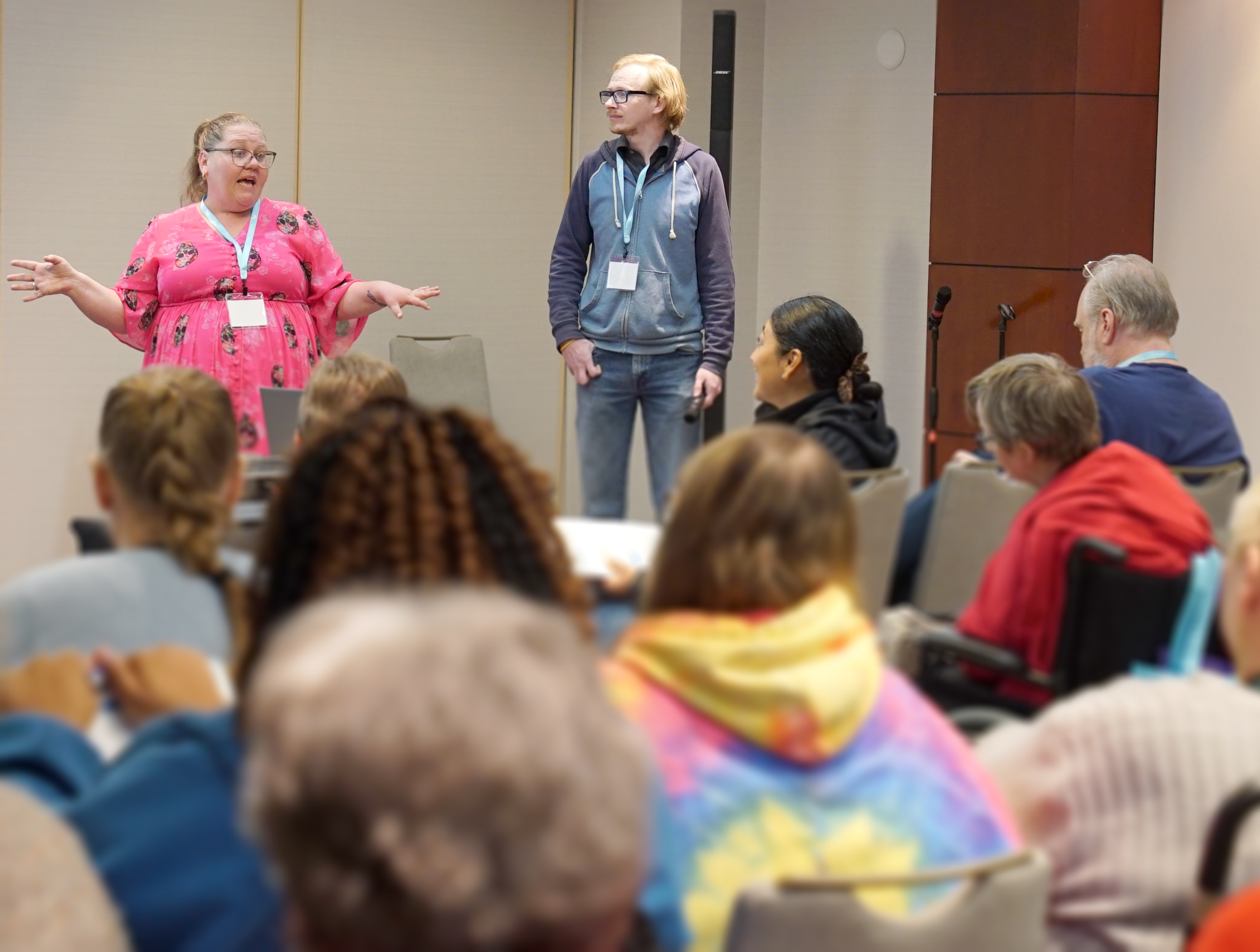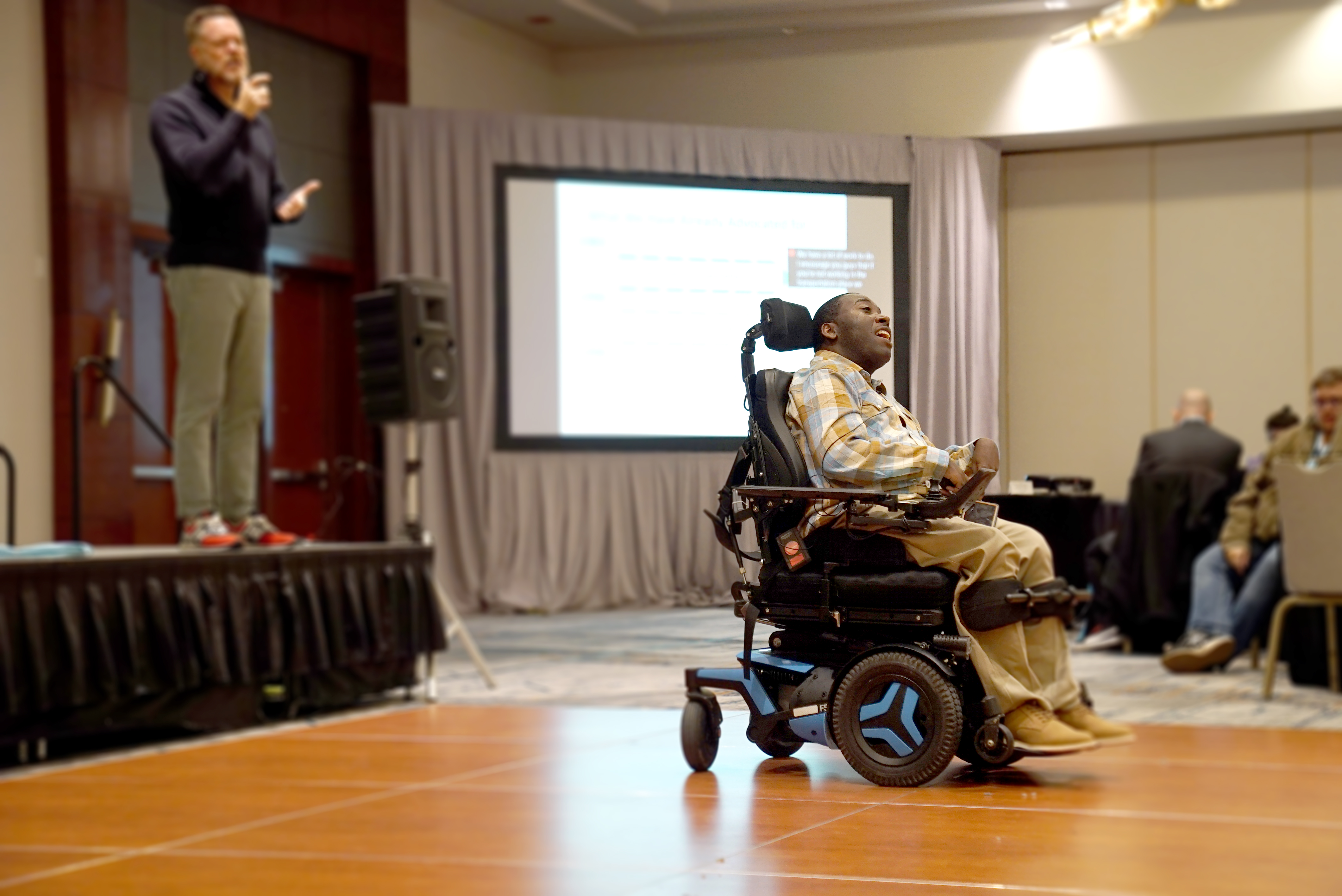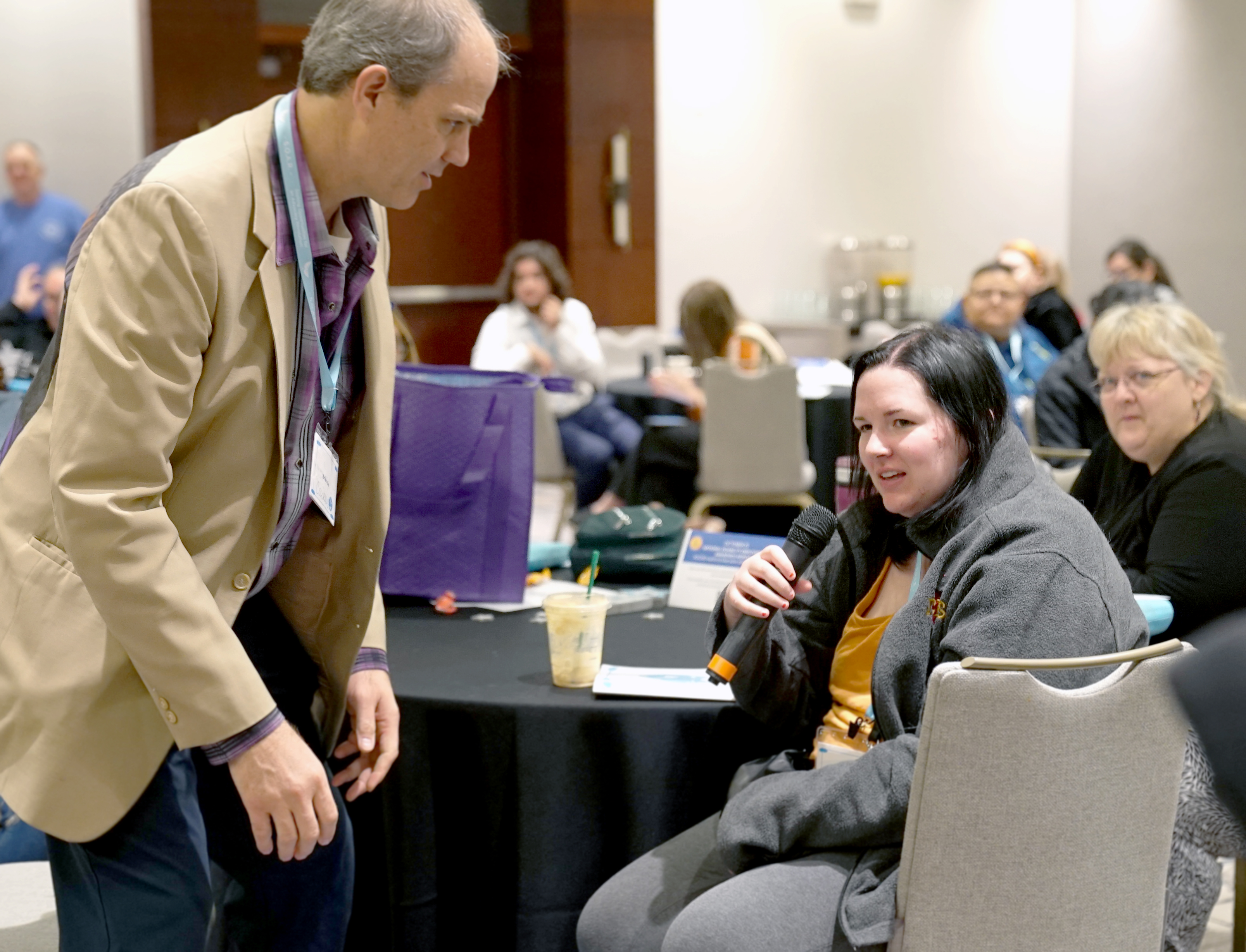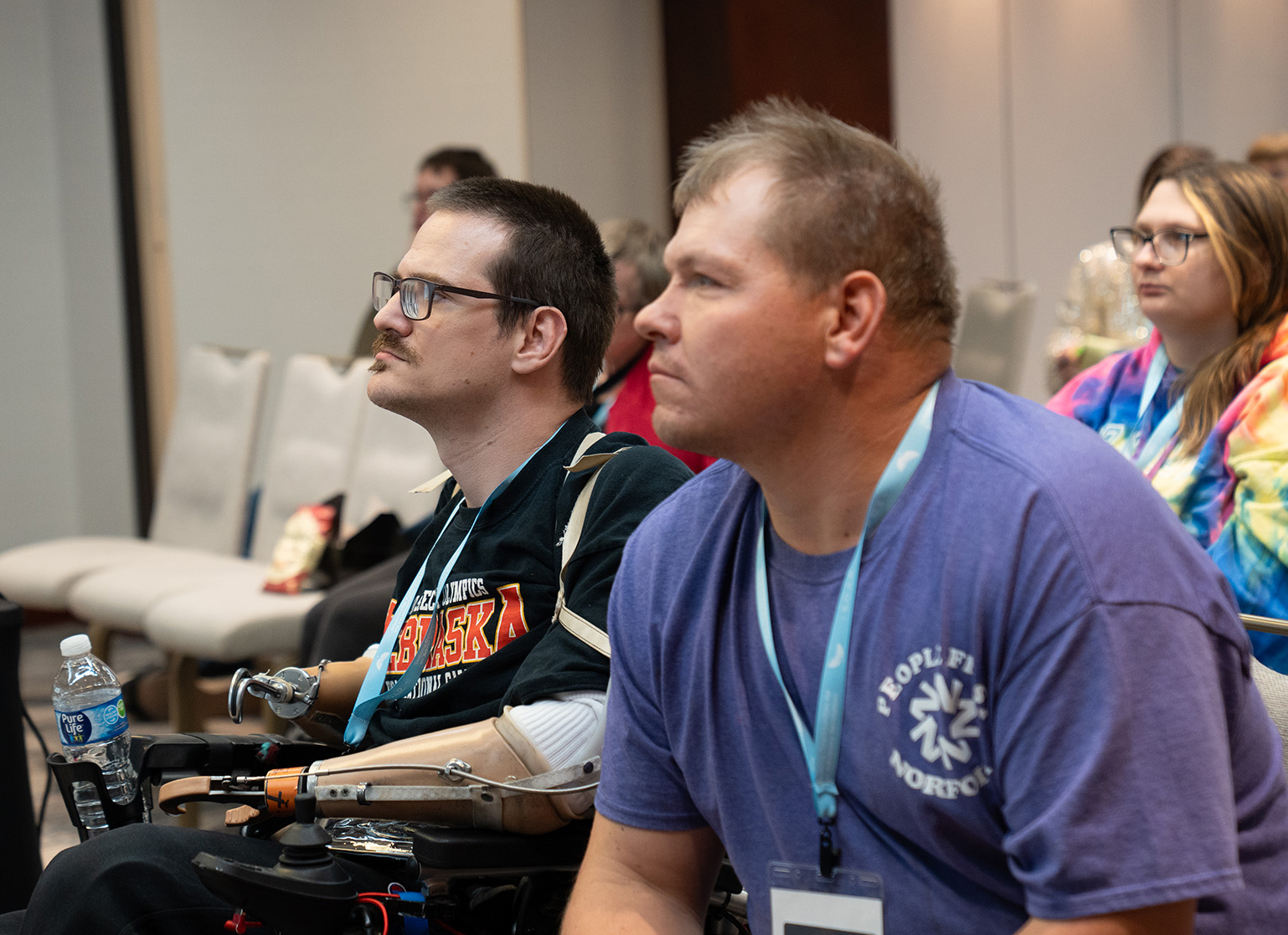SOAR Conference Guests Share Strategies for Self-Advocacy, Disability Rights, and More
While speaking to a crowded room during breakout sessions at the 2023 SOAR Conference, Susan Parker spoke with emotion about being allowed to make her own decisions. Noting that she now had the tools and support to facilitate her own services to achieve her goals, she said, “for the first time, everything in my life is what I wanted.”

Parker, wearing a bright pink dress with floral skulls, talked about how she benefitted from the Charting My LifeCourse curriculum, which empowered her as a self-advocate. She spoke at one of the many breakout sessions at the conference, which hosted over 200 guests in Overland Park, Kan., from Oct. 27-29.
The 2023 conference was hosted by the Self-Advocate Coalition of Kansas (SACK), the KU Life Span Institute’s Center on Developmental Disabilities (KUCDD), and members of the Heartland Self-Advocacy Resource Network (HSRN). Individuals with disabilities gathered to discuss self-advocacy strategies, disability rights, building healthy relationships, inclusion in research, and more.
Keynote speaker Emmanuel Jenkins engaged with the audience during a lively morning presentation titled, “Advocacy: It’s in ALL of US.” In his speech, he challenged the stereotype that people with disabilities can't fight for their rights, telling them they deserve a seat at the table wherever decisions about them are being made.

“I have the power,” Jenkins called on his audience to repeat.
Jenkins is a motivational speaker who advocates for disability rights in his home state of Delaware. He is also the founder of We Stand 4 Something, a non-profit organization whose purpose is to help people who have disabilities pursue their goals.
Toward that goal, Jenkins asked the audience to realize the power of building relationships with people as they advocate for change.
"Even though we are delivering a unified message, that is not what they hear,” Jenkins said, describing a conversation with one state official. “So how about we change our standard thinking, and we start really building relationships?”
Jenkins described how this approach has paid off greater than sharing talking points alone. Political leaders in his state now reach out to see how they can be involved in change. Building human connections with politicians puts a face to disability rights in a way that facts or figures may not.
“When they put the bill on the floor, and they say, ‘All in favor, say aye,’ I want them to think about all the people that decision is going to impact,” Jenkins said.
During his speech, Jenkins praised the advocacy work of Judy Heumann, known for driving policy for disability rights throughout her career. Sometimes called the mother of the disability rights movement, Heumann died March 4 this year.
Her work included organizing one of the longest sit-ins at a federal building to fight for what became the first U.S. federal civil rights protection for people with disabilities. She later served in leadership roles for disability rights, which included appointments by two U.S. presidents.
“We all have a responsibility to share the work of Judy Heumann. And the only way we’re going to do that is to continue this revolution,” he said. "We now have a responsibility to continue to soar. If we stop now, all the work that they’ve done will die. And we will start from the beginning.”

Erin Bowe was one of the first hands raised during a Q&A session at the end of Jenkins’ presentation. She said afterward she was inspired by his lecture to realize the power of self-advocacy. As someone who had faced discrimination in her life, she shared her concerns about social stigmas that surround people with disabilities.
Bowe graduated recently with an associate degree and has an interest in sociology, psychology and anthropology. Bowe also spoke about the challenges of finding transportation and the need for people with disabilities to have access to employment.
“It’s just important to actually be able to do something instead of being stuck inside of your house and then being super isolated,” she said. “And then your mental health takes a toll along with that.”
Melanie Davis, who was involved in planning the conference and presented at one of the sessions, said one of their overarching goals was to make sure people with disabilities have the best say in how the conference turned out.
When asked what goals in advocacy are important to her, she pointed to the remaining challenges of transportation for people with disabilities, saying it shouldn’t be so difficult to move from point A to point B.
"We are shrinking people's worlds, because we are not giving them the opportunity (for access),” she said. “And that's an equity problem.”
Davis also said one of her passions is advocating for access to higher education for people with disabilities, which was the featured topic in two breakout sessions.

Individuals learned how the KU Transition to Postsecondary Education program supports individuals with intellectual disabilities in their university education. Another presentation by Askia "Ski" Adams, from the KU Center on Developmental Disabilities, focused on empowering college students who use augmented or alternative communication.
"I don't think we get anywhere without giving people with disabilities the opportunity to go further than their K-12 education,” said Davis.
“You don't get very far in advocacy without getting into the higher ed system. We know, historically, civil rights movements really took off because of university systems. And if we're not getting people with disabilities a pathway to get into higher education, the civil rights movement doesn't continue.”